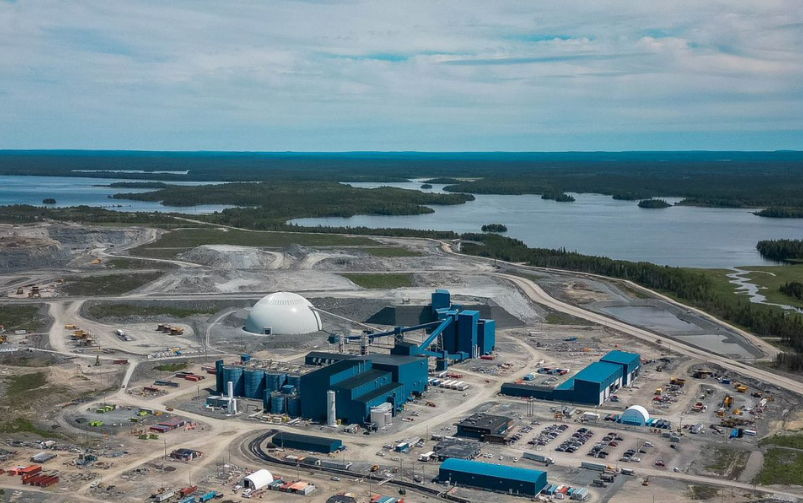Of the 72 countries examined, Verisk Maplecroft found that protectionism has intensified the most in Europe, particularly in Germany. Courtesy of Tadamichi via Unsplash.
New research from global risk intelligence firm Verisk Maplecroft indicates an uptick in protectionism across 72 countries, as governments aim to secure access to critical minerals. The research was included in the company’s Political Risk Outlook report, released on Dec. 12, and highlights an unprecedented surge in state interventionism, not seen in Western democracies since the early 20th century, which the company said is fueled by concerns regarding national security and the resilience of supply chains.
To conduct this research, Verisk Maplecroft used its Resource Nationalism Index (RNI), which is updated on a quarterly basis and used to measure and compare the data that shows the trajectory of these risks as far back as 2016. The RNI, which monitors protectionism and interventionism in energy and mining across 198 countries, revealed a notable rise in protectionist policies over the last five years, particularly in Europe and North America.
According to Verisk Maplecroft, this shift is driven by governments in these regions taking action to secure access to critical minerals, fueled by growing national security concerns over strategic industries in the face of geopolitical tensions.
“While Canada remains a low-risk jurisdiction on Verisk Maplecroft’s Resource Nationalism Index, it has experienced a very significant increase in risk since the fourth quarter of 2019,” said Jimena Blanco, chief analyst at Verisk Maplecroft, in an email to CIM Magazine.
“Resource nationalism in Canada is primarily driven by a desire to counter China’s dominance in the critical minerals sector, with the new legislation [Bill C-34] likely to encourage mining [corporations] and investors to further self-regulate or even voluntarily step back from operations involving Chinese entities,” explained Robert Munks, head of Americas research at Verisk Maplecroft, in an email to CIM Magazine.
Bill C-34, which was passed into law on March 22, addresses national security concerns, a major factor behind resource nationalism, and will now subject critical minerals to more rigorous national security reviews—impacting both operations and investments within the mining industry.
The bill aims to increase the government’s power to review investments by foreign state-owned enterprises and introduces a pre-closing notification regime for non-Canadians proposing acquisitions of Canadian businesses in critical sectors.
Amended changes to the Investment Canada Act came into effect in September, tightening guidelines in an effort to deter foreign takeovers of domestic critical minerals miners, which mostly impacts larger companies. The recent changes introduce a more stringent approval process for foreign acquisitions of Canadian mining companies engaged in significant critical minerals operations, with deals only being approved in “the most exceptional of circumstances” according to Minister Francois-Philippe Champagne.
“This trend towards widening the national security criteria relevant to mining will mean higher compliance costs and longer permitting processes for mining companies where their operations or investments are deemed to present a risk,” Munks wrote. “Longer project lead times may be incurred due to enhanced due diligence and compliance record-keeping requirements.”
As president-elect Donald Trump is set to return to the White House next month, many in the mining industry will be closely watching the potential implementation of 25 per cent tariffs on Canadian imports.
“While our baseline scenario is that this is more likely a trade negotiating gambit, any such tariffs would almost certainly have consequences for the Canadian mining industry through pressure from the regions and provinces to curtail critical minerals exports to the U.S.,” Munks wrote.
He added that any further increase in protectionism and interventionism in Canada would lead to greater uncertainty in the mining sector, making it harder for investors to predict long-term returns in a sector that already suffers from lengthy delays in permitting new projects.
When considering how Canada’s regulatory actions and foreign investment restrictions may affect the future, he explained that protectionist measures, such as tariffs on imported mining equipment or restrictions on foreign ownership, may deter foreign investors by creating a hostile or unpredictable regulatory environment, while simultaneously encouraging investment from domestic entities or companies more adept at navigating the evolving landscape.
Looking to the future, Munks believes that interventionist policies may require more comprehensive consultation with Indigenous communities, potentially leading to more inclusive development models. He also added that if protectionist policies focus on regional development and domestic job creation, the mining sector might see greater local economic benefits. However, the regional focus could create uneven opportunities across provinces or territories.




